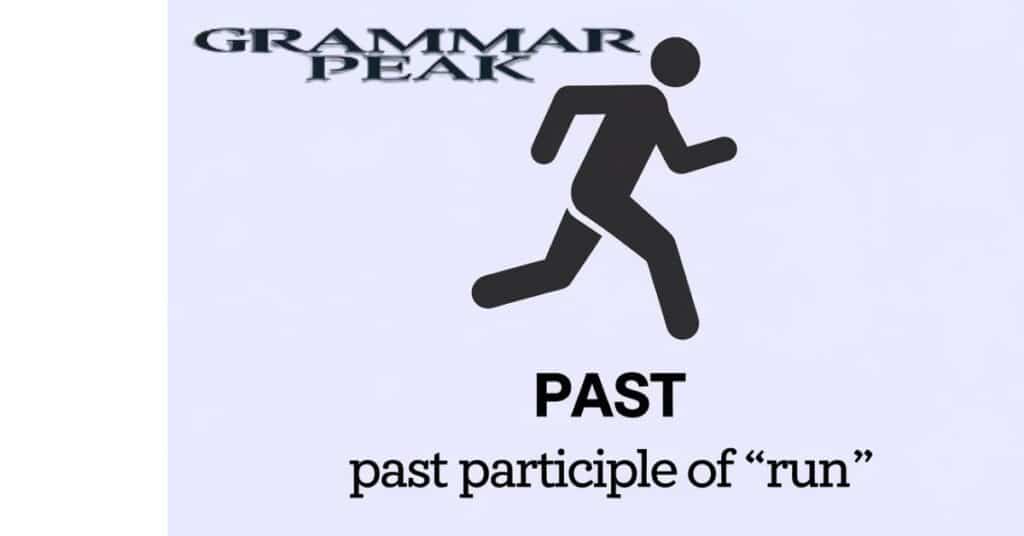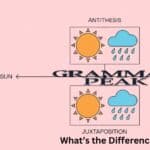Learning how “run” behaves in the past and past participle is key to learning the grammar of English. “Run” is an irregular verb. This is why it doesn’t behave according to the regular verb patterns.
Hi! Here we’re going to explore the past tense of “run”, the past participle of “run”, and using “run” in various tenses. We’ll add a few examples of “run” for good measure and some useful tables to help you get a grip on verb forms and their usage. Let’s dip our toes into the awesome world of verb conjugation in English!
Past Tense of “Run”
I understand now, you’re asking for a table illustrating the use of the past tense of “run” with different subjects. Here it is:
| Subject | Sentence using ‘Ran’ (Past Tense of ‘Run’) |
| I | I ran a marathon last year. |
| You | You ran quickly to catch the bus. |
| He | He ran to the store for some groceries. |
| She | She ran in the park this morning. |
| It | The dog ran across the yard. |
| We | We ran together in the race. |
| They | They ran to shelter from the rain. |
| The kids | The kids ran around the playground happily. |
Read must Be Understanding How “Run” Changes in the Past and Past Participle
Examples of Past Tense “Run”
When using the past tense of “run,” you can create various sentences. Here are a few examples:
- I ran in the park every morning last summer.
- They ran a race last Saturday.
- He ran to help his friend.
These examples highlight how you can use “ran” in different contexts.
Past Participle of “Run”
The past participle of run is “run.” Here’s a table illustrating the use of the past participle of “run” with different subjects:
| Subject | Sentence using ‘Run’ (Past Participle of ‘Run’) |
| I | I have run five miles this week. |
| You | You have run faster than anyone in the group. |
| He | He has run several races this year. |
| She | She has run three marathons in her lifetime. |
| It | The team has run multiple successful campaigns. |
| We | We have run into some challenges during the project. |
| They | They have run out of time to complete the task. |
| The kids | The kids have run around the park all afternoon. |
This table showcases how to use the past participle “run” with different subjects in sentences.
Examples of Past Participle “Run”
Here are some sentences using the past participle of “run”:
- We have run this route many times.
- They had run out of time before the meeting started.
- He has run several marathons.
These examples illustrate how the past participle can be effectively used in sentences.
you will like Understanding How “Run” Changes in the Past and Past Participle
Using “Run” in Different Tenses
The verb “run” can be used in various tenses. Each tense gives a different timeframe for the action. Understanding these English tense variations is key to effective communication.
| Tense | Form | Example |
| Present | run | I run every day. |
| Past | ran | I ran yesterday. |
| Future | will run | I will run next week. |
| Present Perfect | have run | I have run three miles. |
| Past Perfect | had run | I had run before lunch. |
FAQ” S
What is the past tense of “run”?
The past tense of “run” is “ran.”
What is the past participle of “run”?
The past participle of “run” is “run.”
How do you use “ran” in a sentence?
You can say, “I ran to the store yesterday.”
What is an example of the past participle of “run”?
An example is, “I have run five miles this week.”
Is “run” an irregular verb?
Yes, “run” is an irregular verb in English.
Conclusion
Understanding how “run” changes in the past and past participle is vital for mastering English grammar. The forms “ran” and “run” play important roles in effective communication. By practicing these forms and learning the rules, you can enhance your English skills. This knowledge allows you to express yourself clearly and accurately. Remember, mastering verbs takes time and practice, but it’s a rewarding journey.

Mason Blake is an experienced blogger with a passion for language and communication. With years of expertise in crafting informative and engaging content, Mason shares valuable insights on grammar and writing. His clear, concise, and reader-friendly approach has earned him a loyal following, helping readers sharpen their language skills and master the art of effective communication.








I don’t think the title of your article matches the content lol. Just kidding, mainly because I had some doubts after reading the article.
Thanks for sharing. I read many of your blog posts, cool, your blog is very good.
Your article helped me a lot, is there any more related content? Thanks!
Thank you for your sharing. I am worried that I lack creative ideas. It is your article that makes me full of hope. Thank you. But, I have a question, can you help me?
Thank you for your sharing. I am worried that I lack creative ideas. It is your article that makes me full of hope. Thank you. But, I have a question, can you help me? https://www.binance.com/ES_la/register?ref=T7KCZASX
Your point of view caught my eye and was very interesting. Thanks. I have a question for you.
I don’t think the title of your article matches the content lol. Just kidding, mainly because I had some doubts after reading the article.
Your point of view caught my eye and was very interesting. Thanks. I have a question for you. binance
Can you be more specific about the content of your article? After reading it, I still have some doubts. Hope you can help me.
Your point of view caught my eye and was very interesting. Thanks. I have a question for you.
Your point of view caught my eye and was very interesting. Thanks. I have a question for you.
ih2qow
szvbg3
m0r4dy
I adore meeting utile information , this post has got me even more info! .